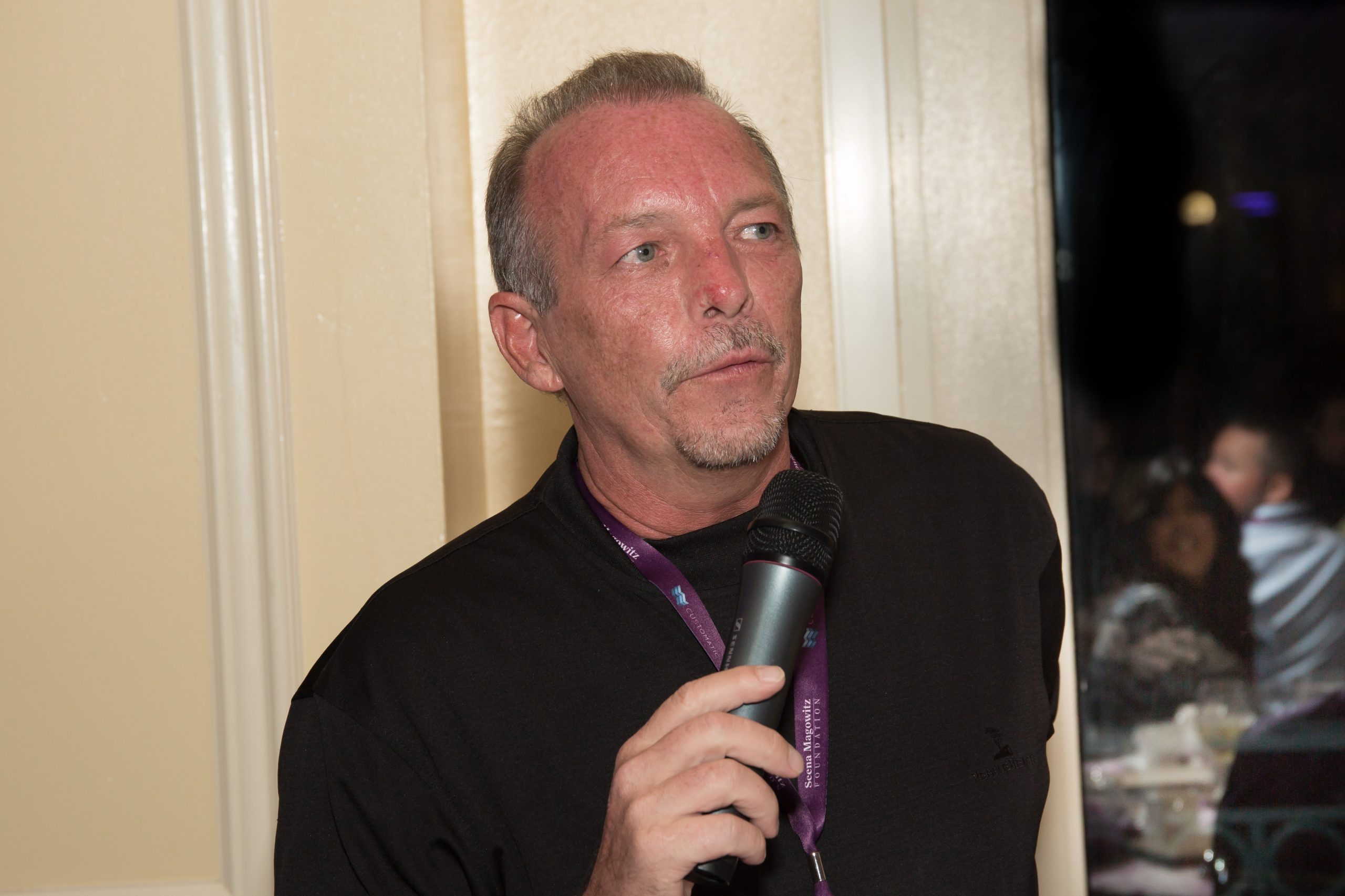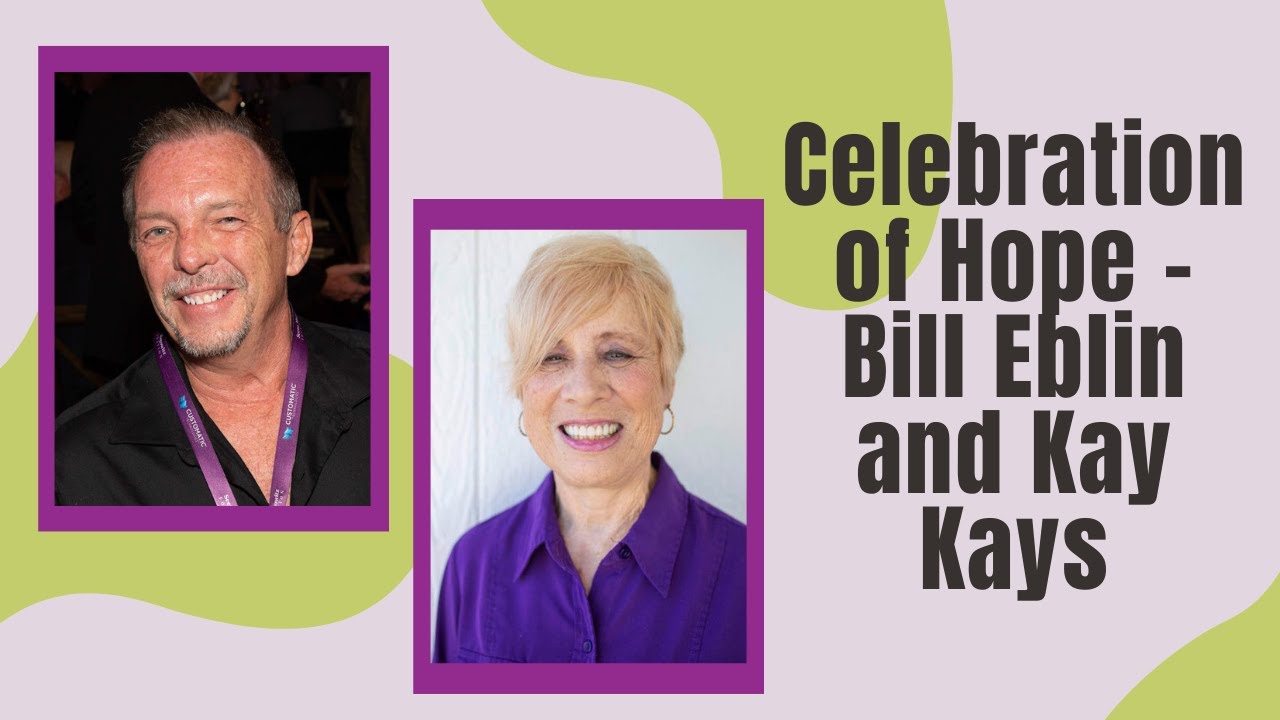
BILL EBLIN DEFIES ORIGINAL PROGNOSIS
Seeking A Second Opinion Saved His Life
Written By Debra Gelbart
July 23, 2017
Diagnosed: June 1999 At Age 35
Status: No Sign of Active Cancer
A Survivor’s Story: Don’t Ignore Symptoms and Make The Most of Life
Bill Eblin of Peoria, Arizona is adamant about advising people not to ignore any strange medical symptoms for more than a couple of weeks, and to seek a second opinion if symptoms persist after a diagnosis.
He lived with abnormal symptoms for more than two years, and by the end of that period, he had been diagnosed with cancerous tumors in his duodenum (the first section of the small intestine) and his pancreas.
“I had had stomach pain and frequent vomiting for months when I finally went to the doctor,” said the 53-year-old IT specialist originally from Groveport, a suburb of Columbus, Ohio. “The doctor wrongly diagnosed me with irritable bowel syndrome. I continued to suffer with pain and vomiting for another year and a half, until I finally was seen at the University of Miami Hospital in June of 1999.”
At that point, he had recently moved to Fort Lauderdale, less than an hour from Miami, for a new job when he underwent surgery to address what was causing his symptoms. Cancerous tumors on his duodenum and the head of his pancreas were successfully removed and he has been cancer-free ever since.
Eblin will appear with other pancreatic cancer survivors at the Seena Magowitz Golf Classic, a fundraising event held every year in Boston to benefit the Seena Magowitz Foundation. Eblin worked for Roger Magowitz as his director of information systems in the early 1990s in Virginia Beach, Va., right after Eblin was discharged from the Navy.
Discovery of Cancer
For years, Eblin has had multiple endocrine neoplasia Type 2, an inherited condition that predisposes him to medullary thyroid cancer; digestive problems caused by disordered nerves in the gastrointestinal tract; and muscle, joint, and spinal problems. Before his cancer diagnosis, doctors had monitored him regularly for any problems arising from the multiple endocrine neoplasia.
Before surgery that day in 1999, Eblin’s doctor had told him he had duodenal tumors, but the doctor wasn’t sure whether they were benign or cancerous and said Eblin needed exploratory surgery to determine that. His doctor, Eblin said, “drew a horseshoe on a manila envelope and said, ‘this is your stomach.’ He drew a line through the middle and said, ‘I’m gonna take all of this out.’ That was fine with me,” Eblin said. “I just wanted the pain to stop.”
He underwent what’s called a “Whipple Procedure,” the most commonly performed surgery to remove tumors in the pancreas.
The surgeon found that the duodenal tumors and the pancreatic tumor just discovered in the surgery were cancerous. When Eblin came out of surgery, the doctor said he was a lucky man because without attention to the tumor on his pancreas especially, Eblin might have died in the next three months. Instead, Eblin spent the next three months in the hospital, recovering.
He has more advice: live your life to the fullest extent possible, whether or not you have cancer. Eblin was so shaken by events in his life related to cancer that he says for 10 years, until 2003 or so, he felt almost paralyzed socially. He had lost his parents—his mother to brain cancer in 1993 and his father to pancreatic cancer in 1995—and faced his own cancer scare just four years later. Now he wishes he hadn’t wasted time worrying or withdrawing from social activities. “After my mother died, I figured someday I would get cancer,” he said. “I sat around for 10 years not wanting to marry again and not wanting to pass on any genes prone to cancer. But I realize now that’s no way to live. Get out and live, regardless of what you’re worried about.”
Giving to Charity A Priority
He’s devoted to supporting cancer charities. He donates part of every paycheck to the Magowitz Foundation. “I’m glad Roger is doing something to recognize his mother’s illness and passing, making such a big statement. I’m proud to know him.” Eblin also contributes regularly to charities that support research into brain and breast cancer.
And he’s enjoying life in the wide-open spaces of a Phoenix suburb. “You can’t take for granted that you got a second chance,” he said. “I’m going to make the most of my life.”









Thanks Kay for such an inspiring talk about your endeavor with pancreatic cancer and I wish you the best!!